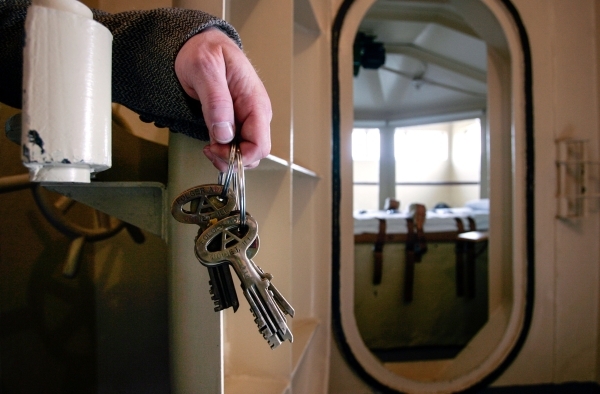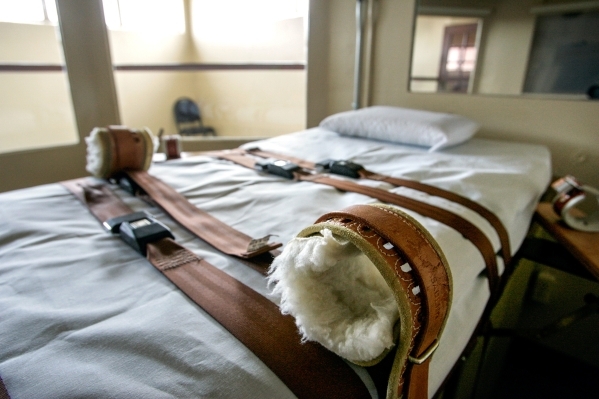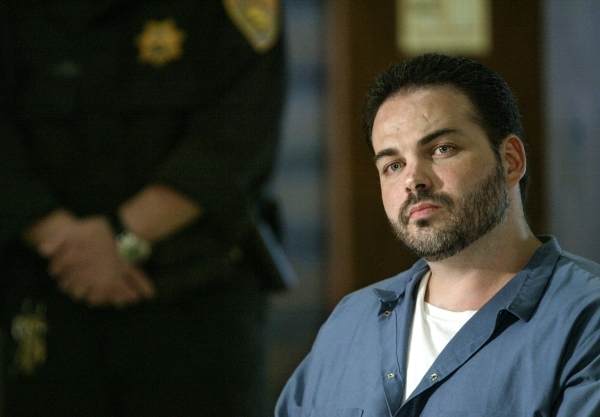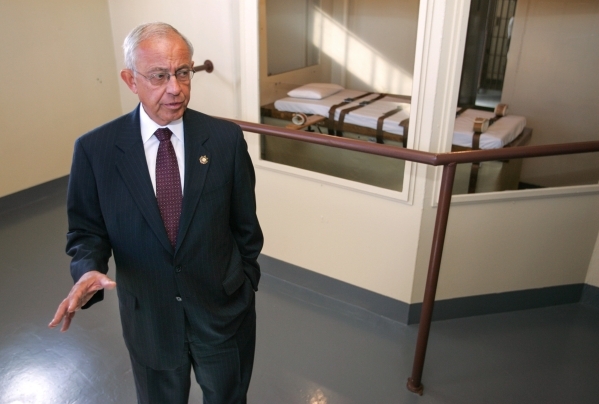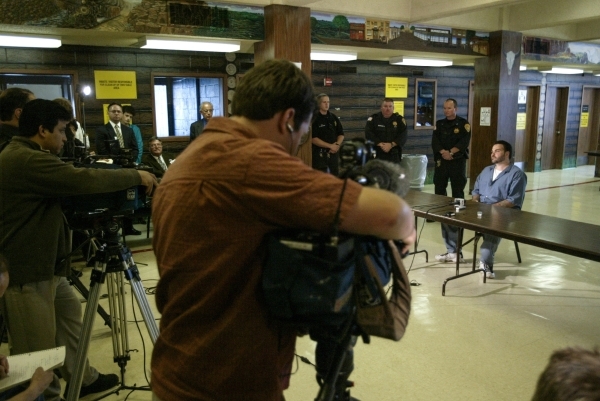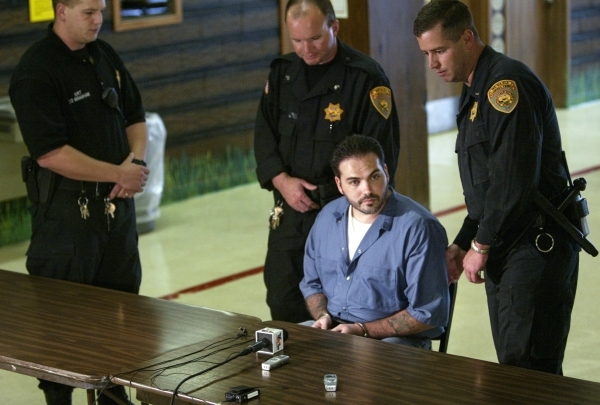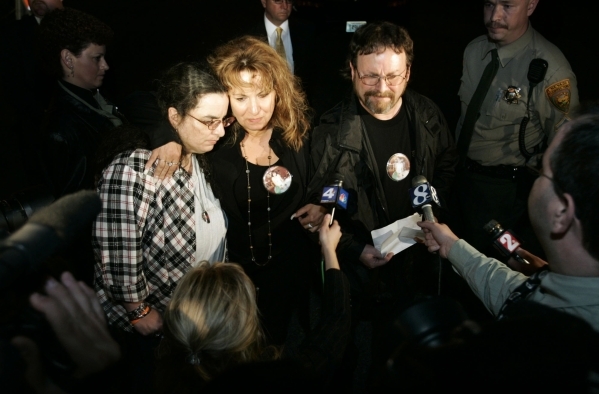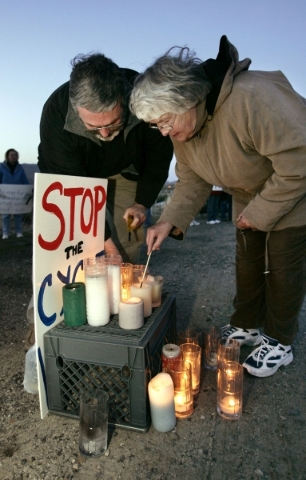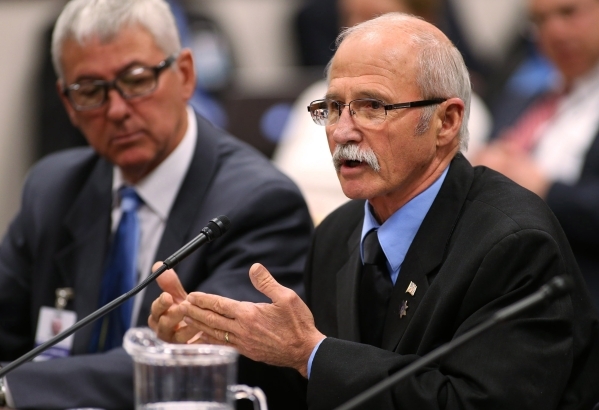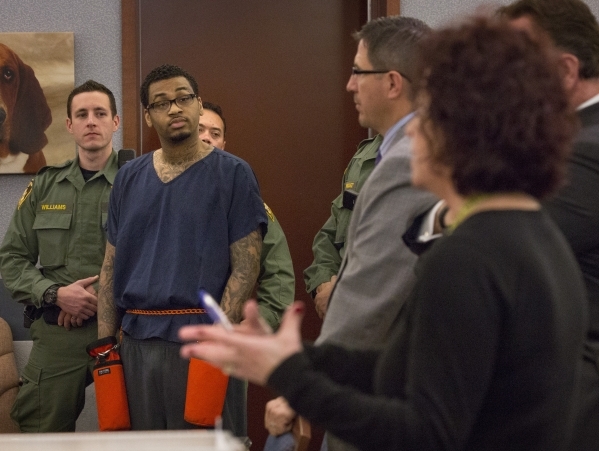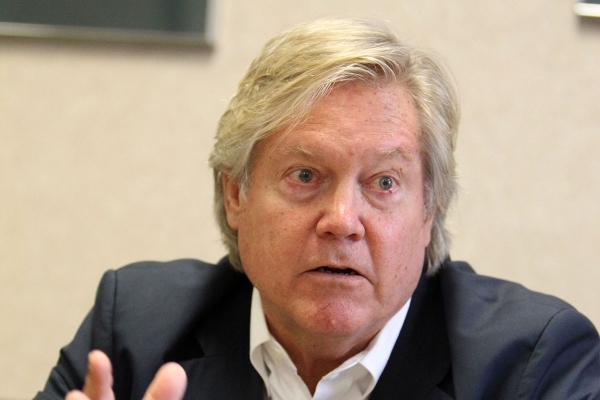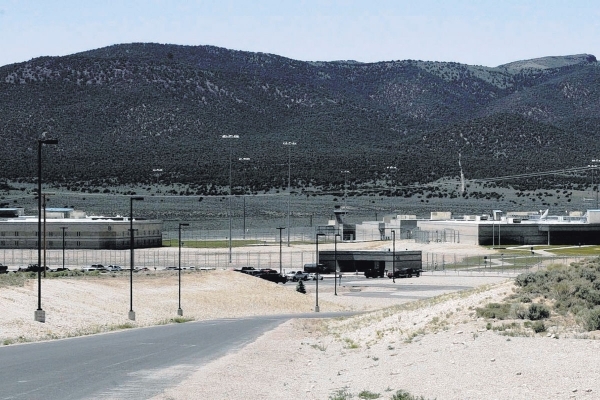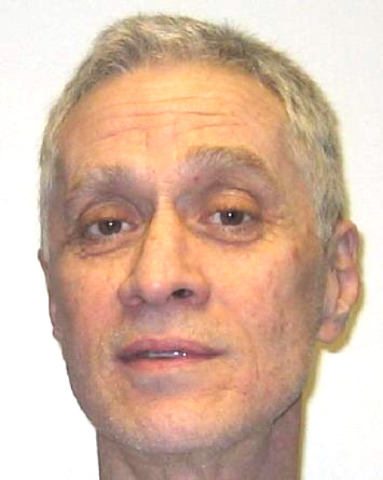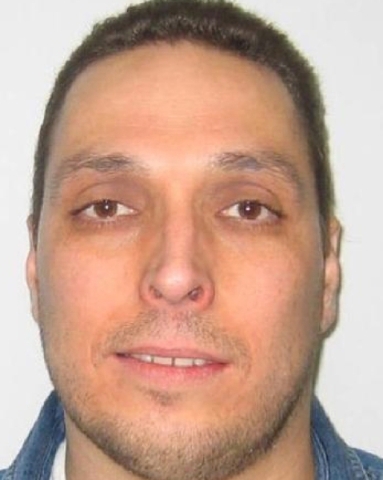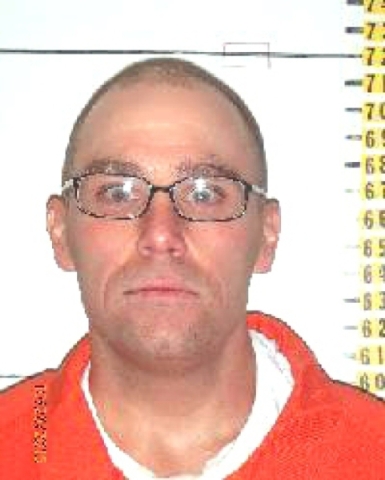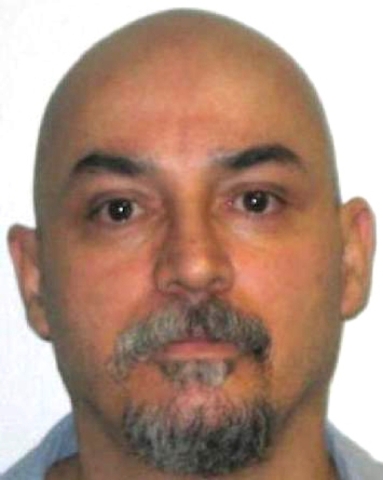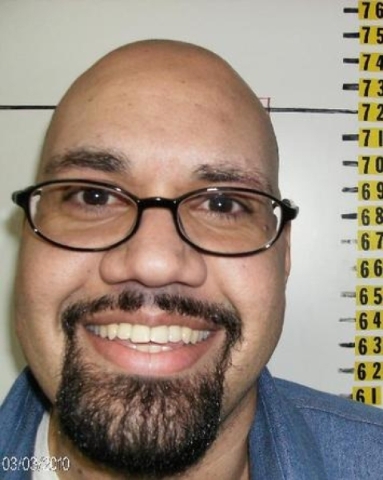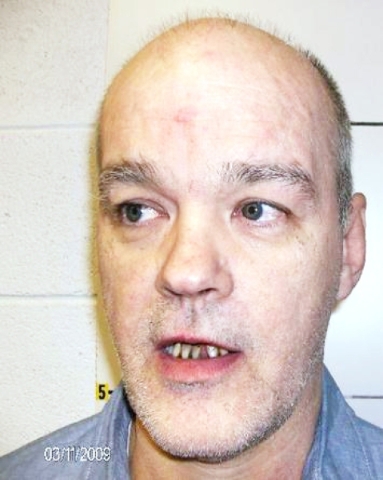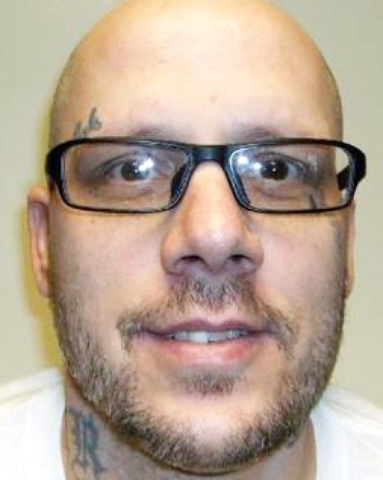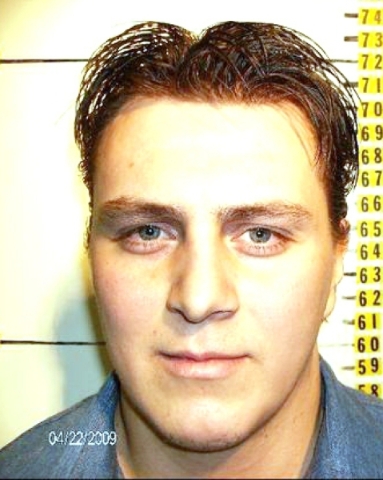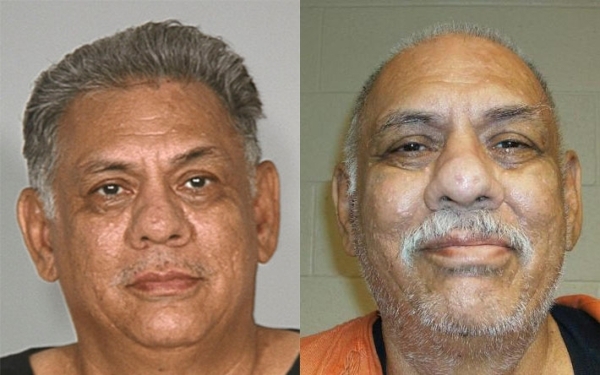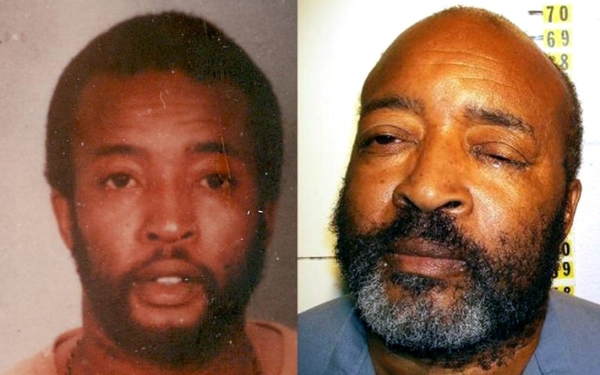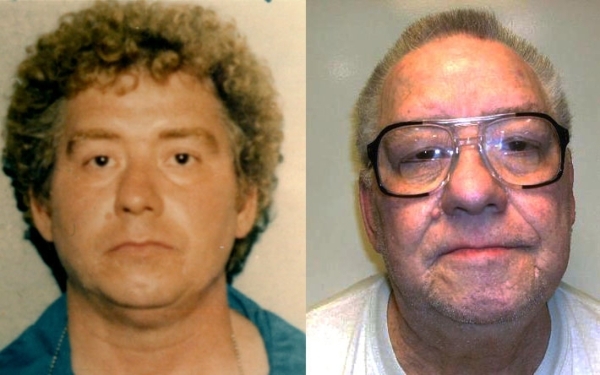Death row not so deadly
CARSON CITY — It's called death row. The place where Nevada's worst of the worst spend 22 hours or more each day in solitary cells, waiting for the call that means they will be executed by lethal injection for their heinous crimes.
But for Nevada's approximately 80 death row inmates at Ely State Prison, it is a place where they are more likely to die of disease or suicide than be executed.
Lengthy appeals, the lack of a suitable execution chamber, debates over the drugs used to administer the death penalty and defense attorneys who diligently represent their clients all factor into why Nevada has not executed an inmate in almost a decade.
Despite a reputation for being tough on crime, Nevada has executed only 12 inmates in 28 years. And 11 of the 12 executions since capital punishment was reinstated by the state Legislature in 1977 have been "volunteers," or inmates who have voluntarily given up their appeals.
State Sen. Tick Segerblom said that for several reasons, Nevada should join a growing number of states that have abolished the death penalty in favor of life sentences without parole.
Although efforts to do away with the death penalty in Nevada have gone nowhere, the evidence shows that capital punishment is far more costly than just sentencing killers to life without a chance of parole, he said.
"It is clearly a huge waste of resources," Segerblom, a Las Vegas Democrat, said. "It costs a ton of money just to go to trial. The appeals process takes forever. They are stuck in solitary confinement at Ely that costs us a fortune. And at the end of the day, no one is actually going to be executed."
But there are supporters of the death penalty, including Gov. Brian Sandoval.
Another is former Washoe County District Attorney Richard Gammick, who handled 10 death penalty cases in his career. In testimony opposing a moratorium on the death penalty proposed in the 2011 legislative session, he said lawmakers need to remember who is sitting on death row.
"These are the worst of the worst," he said. "These are the people who have forfeited their right to live any longer in this society because of their actions — not anyone else's actions.
"Is the system broken? Absolutely," Gammick said. "Why do we have people sitting on death row for over 20 years? That needs to be fixed. If you want to fix something, fix this so it is done much more quickly while still protecting all the rights of the accused."
Ron Dreher, who lobbies for several law enforcement groups at the Legislature, said capital punishment is necessary and would be a deterrent if it were used as intended. As a major crimes detective for the Reno Police Department, Dreher worked on several horrific cases, including the 1994 murders of two U-Haul employees and the torture-murder of 3-year-old Mailin Stafford that same year by her stepfather.
One of the U-Haul killers, Duc Cong Huynh, committed suicide in December 1995 at Ely State Prison. The other, Alvaro Calambro, was executed after he gave up his appeals. Carlos Gutierrez remains on death row for the Stafford murder.
But Dreher said he would not be opposed to doing away with capital punishment if life without parole meant just that, including solitary confinement and a lack of privileges granted other inmates.
"Then, the actual 'life without parole' would really mean something and would be a penalty," he said.
Notorious population
Nevada's population of death row inmates increased after a Clark County jury in November sentenced Ammar Harris to death by lethal injection for killing three people on the Strip in 2013.
He will be joined by Jeremiah Bean, sentenced to death after a jury verdict earlier this year for the killing of five people in and around Fernley in Northern Nevada in 2013.
They will join a group of notorious individuals including Pat McKenna, known as Nevada's most dangerous inmate, who killed another man in jail in Clark County in 1979. McKenna has tried to escape several times.
Others on death row include Richard Haberstroh, who in 1986 raped and choked 20-year-old Donna Marie Kitowski when she went to a store in Southern Nevada to buy ingredients to bake cookies for her 20-month-old son; and Michael Sonner, who in 1993 killed Nevada Highway Patrol trooper Carlos Borland near Lovelock.
But more death row inmates have died from illness or suicide than have been executed, a total of 16, based on the 2014 audit. Another 42 left death row after winning new trials or sentencing hearings that allowed them to avoid the death penalty, sometimes because of misconduct by overzealous prosecutors.
In one case, a Nevada District Court judge in 2010 ordered the immediate release of former death row inmate Ronnie Milligan after hearing testimony that the Navy veteran might have been wrongfully convicted of a 1980 slaying in Northern Nevada. He was released on parole in 2011 after serving 30 years.
Nevada's last execution came nearly a decade ago, when Daryl Mack was executed in 2006 for the rape and murder of a Reno woman, Betty Jane May, in 1988. Mack too was a volunteer who gave up his appeals.
The death penalty can be imposed in Nevada only when at least one of more than a dozen aggravating circumstances, such as mutilation, are found. A jury then weighs the aggravating circumstances and those in the defendant's favor, called mitigating circumstances, to determine whether capital punishment is warranted.
Costly cases
Fodder for those opposed to the death penalty came from a state audit released in December 2014 that found Nevada murder cases in which prosecutors seek the death penalty can cost nearly twice as much as those with a lesser punishment.
Death penalty cases cost the public on average $1.03 million to $1.31 million, according to the audit. In a murder case in which capital punishment is not sought, the average cost is $775,000. In those cases, prosecutors typically seek life in prison without parole.
The 105-page audit came after the 2013 Legislature ordered a review of the costs of capital punishment. The audit, which took 18 months, looked at the price of trials, appeals and jail time for 28 Nevada cases.
But there was no appetite in the 2015 Legislature to review the death penalty.
Appeal after appeal
The reasons for why executions are infrequent in Nevada are many, but the appeals process is frequently cited as a major contributor to delays.
A conviction and sentence of death is automatically appealed to the Nevada Supreme Court. This court considers potential errors in the trial, if at least one aggravating circumstance was found and whether the sentence was excessive, among other issues.
If upheld, inmates then file a post-conviction petition for habeas corpus in the District Court where the conviction occurred. The petition is normally assigned to the original judge or court. Post-conviction petitions for habeas corpus typically raise the issue of ineffective assistance of counsel but can also claim newly discovered evidence or prosecutorial misconduct.
This petition also goes to the Nevada Supreme Court.
If the sentence is upheld, inmates then file a petition in the federal court system, where all claims must be brought forward. These cases can be returned to the state courts for further proceedings.
Federal appeals eventually work through the 9th U.S. Circuit Court of Appeals and to the U.S. Supreme Court, which can choose whether to consider the inmate's petition.
The process is complicated, and long delays are common. Sometimes a new attorney takes over a case and needs time to review the details.
Methods are few
Nevada has another problem in conducting an execution, should one be set by a federal judge: no execution chamber. The original chamber at the now-closed Nevada State Prison in Carson City could be used if an execution was set, but it probably would face legal challenges on various grounds, including accessibility.
The 2015 Legislature approved $858,000 to build an execution chamber at Ely, but it is at least two years away from completion.
Then there is the ongoing legal challenge across the country to the mix of drugs that would be used to carry out a lethal injection.
Nevada would use the drugs midazolam and hydromorphone to administer a lethal dose and has an adequate supply of these drugs to carry out an execution if ordered, according to the state Corrections Department.
But death penalty watchdogs said use of the drug almost assuredly would spawn lawsuits after highly publicized incidents of botched executions in other states.
So life goes on for Nevada's death row inmates, who reside either in the "A" or "B" side of a cellbock at Ely. Inmates are said to prefer the A Block because the B Block also houses inmates with disciplinary issues and so is noisier.
The inmates spend almost all of their time in their cells, getting an hour or two each day on the yard or out of their cells on the "tier" where they can have contact with other people. But some inmates never leave their cells.
Death row inmates live in individual cells that measure about 88 square feet. They have windows that show the outside of the building as well as a window inside that can view their unit. They can have televisions but must purchase them.
Each inmate receives about three hours of recreation time each day. About every fourth day, inmates get an additional two hours of "tier" time when they can use phones, shower, play cards or mingle with other inmates. They are also permitted visits on two days designated each week.
Segerblom said he does not believe Nevada will change its position anytime soon though there is a trend of ending capital punishment in the United States.
Capital punishment is authorized in 31 states. In recent years, New Mexico, Illinois, Connecticut, Maryland and Nebraska have abolished the death penalty.
"The fact is that it is really done for retribution for a victim's family," Segerblom said. "There is no societal benefit. An execution 30 years after a crime was committed has no cause-and-effect relationship."
Contact Sean Whaley at swhaley@reviewjournal.com or 775-687-3900. Find him on Twitter: @seanw801



